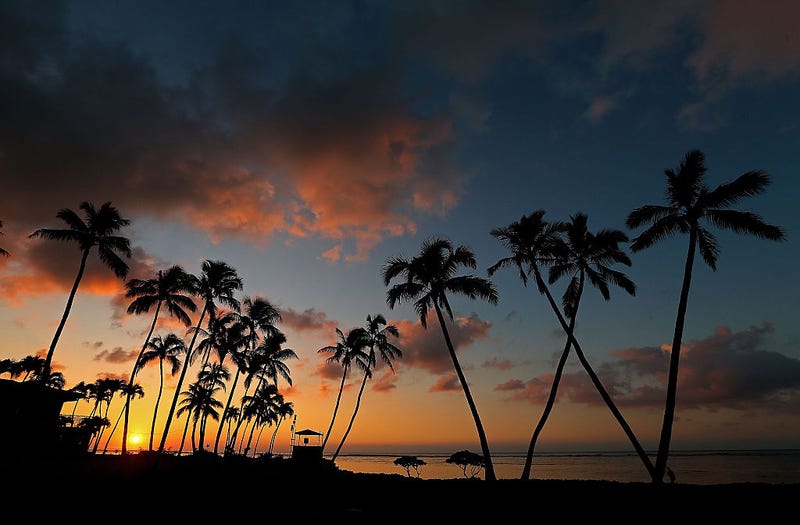
Hawaii has dealt with a dearth of pandemic-related issues this past summer, with droves of tourists tapping into the island’s precious resources and the delta variant driving up hospitalizations.
According to reporting by the The Associated Press in August, Native Hawaiians have some of the lowest vaccination rates on the islands, at 40%.

But despite the island community's struggles with the virus, some groups of Native Hawaiians are conflicted over whether to get vaccinated, per SFGATE.
It's an issue mired in dark associations in the island's history. For some Native Hawaiians, kanaka oiwi or kanaka maoli, getting the vaccine is equivalent to losing their already vanishing autonomy and independence from a government that has routinely undermined them in the past.
One such Native Hawaiian is Charles Anderson, who told SFGATE when asked by his landscaping clients if he's vaccinated, he answered: "F—k no, I'm sovereign!" Anderson’s family goes back generations in Hawaii. For him, vaccine mandates infringe on people’s independence and rights.
"It's our individual responsibility, what happens," he said in an interview.
While Anderson was vaccinated as a child for school, he hasn't gotten any more as an adult. Some of his family doesn't agree with him on this, according to Anderson, and he hasn't seen them in a while as a result.
"It's very American, which is ironic — very individualistic — to behave this way," said Keawe'aimoku Kaholokula, professor and chair of the Department of Native Hawaiian health of the University of Hawaii at Manoa, according to reporting by SFGATE.
"I think our people need to remember that a part of our culture is protecting each other over our own self-interest," he said.
For those who contracted COVID-19 before getting vaccinated, the virus is a bigger risk than the vaccine.
Oahu resident Maile Alau contracted COVID-19 in August 2020, before the vaccine became available. It left her with long-standing respiratory problems, and she has since been vaccinated, as have all of her siblings and her spouse. "Native Hawaiians have such health problems to begin with, why would I not protect myself?" she told SFGATE.
Others feel that because of their community's painful history with past diseases, it’s their responsibility to get vaccinated.
"Throughout my life, I've always been inspired by my culture. To hear of moolelo (stories) about illnesses that were brought to Hawaii and how they affected the lives of all kanaka Hawaii (Hawaiians) is at times disheartening," said Taylor Lihauakahianui Collier, another resident of Oahu, to SFGATE.
"As most Natives did not survive the fate of these introduced diseases, the few who did became resilient," she said. "They were able to create a path of forgiveness and compassion for all things, including illnesses that brought pain and sadness."
"As a Hawaiian, I do not blame anyone or anything for COVID-19," she told the publication. "The only thing I can do is take the steps needed to stay healthy, become resilient and evolve, just as my kupuna did. Getting vaccinated is one of those steps."

